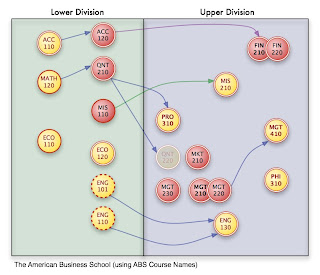I think the iPhone is the best product out there, due to intuitive interaction design and eloquent industrial design of the product. Using a perspective on Larry Keeley's model for product design in looking the dimensions of Capability (Engineering), Viability (Business Management), and Desirability (Interaction Design), it is obvious why Apple is a success. Customers use the product not just fulfill a need, but the customers really enjoy (desire) using the product, which generates customer Loyalty to the point of becoming product zealots.
However, Apple's tight vertical integration (hardware, software, development tools, application distribution channel) for the sake of quality cannot compete in the marketplace. Why? The resources of Apple alone cannot compete with the resources of the world marketplace for hardware components, should they all start using a single operating system, such as Android.
Hardware advances require economy of scale to create the next generation of processors and other components and the factories that produce them. Should the other phone and smart device companies choose a single operating system, e.g. Android, then Apple has to compete with the research and development resources of combined companies. The combined industry resources has a higher economy of scale than that of Apple.
What will happen is a replay of the PC Clone market vs. Macintosh. Apple's solutions did what they say in marketing is
market cannibalization. Because the operating system only runs on one hardware, and the hardware runs only one operating system, both products loose market share. In the PC Clone market, there were a many operating systems that could run on many different clones, The sheer scale of this market muscle eventually closed the gap between Macintosh's advantage, e.g. high-end video cards in desktop publishing, and then leap-frogged the Macintosh platform. Eventually, Macintosh was a an overpriced under-performer in the 1990s (around the time of Macintosh Quardras and Macintosh PowerPCs). Other operating systems, e.g. Windows, could sell to like 96% of the market, while the Macintosh OS was limited to sell to about 3% of the market at one point.
Simply, the strategy for tight vertical integration will fail because of the (one) need to achieve economy of scale in hardware electronics and (two) artificial limitation of market, market cannibalization by design, of Apple's superior operating system. Also, smart-phones and other computers cannot mimic the market of luxury clothing and be sustainable, due to the current aggregate costs of research and development needed to make such devices.
My recommendation or solution would be to partner companies like Nokia and Motorola and get them to make hardware devices that meet Apple's required level of quality, and allow them to compete in the marketplace. In order to assure quality of application software, Apple should start a logo certification program to certify that applications were made in the desired way (using Apple's tools) but open the door for third party innovations. The technical support should be limited to a clean system with only certified programs. Lastly, a bit technical, but engineers will understand: utilize hashing algorithm to authenticate their certification, and show a warning for other applications (which could be shut off only through extreme technical types).













